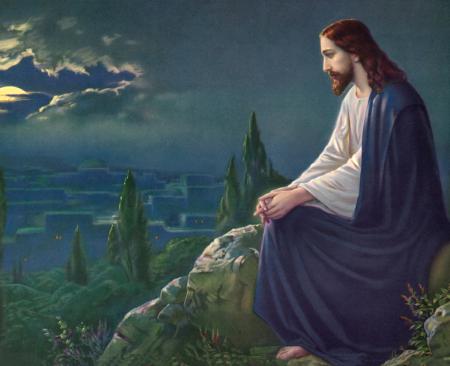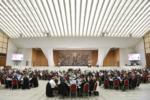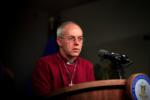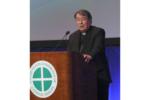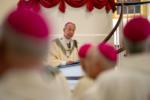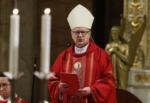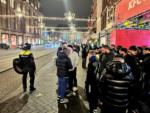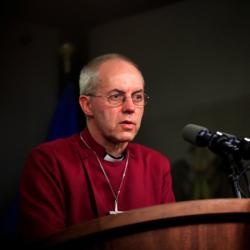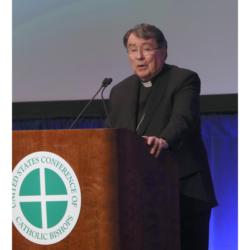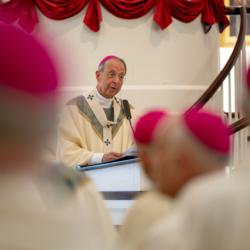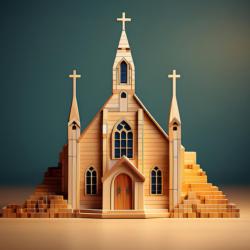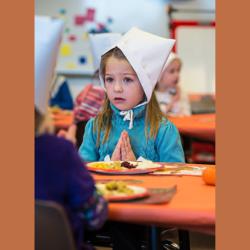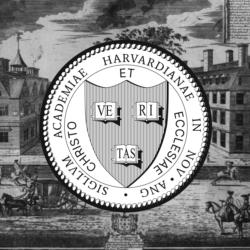'I believe'
Below is The Pilot transcription of Archbishop Richard G. Henning's Installation Mass homily delivered at the Cathedral of the Holy Cross in Boston's South End, Oct. 31, 2024. -- Editor's note.
I believe.
You know, since the announcement back in August, people have been asking me about me -- all kinds of questions about my opinions, my personality traits, my history. The most common question I've received in the last few months boils down to something like this: Have you ever been, are you now, or will you ever be a Red Sox fan?
Now, while that may be a very important question here in Boston, along with all those others, it seems to me that the most important thing that you, the people of this archdiocese, need to know about me is that I believe. So, bear with me for a moment as I talk a little bit about what I believe, what we believe, as the people of God. I believe in one God, the Father Almighty, maker of heaven and earth. This God is all-powerful, all-knowing, eternal, and shockingly, in accord with the Scriptures, this God is love itself.
God is creator of all things -- a somewhat scandalous thing to say, given the world in which we live. This truth, that God is, in some way, the mystery of God, is woven into the very fabric of creation, even into our own hearts, as imperfect as we may be. This one God, this God who is love, this God who is creator of all things, is a faithful God. That's really the language, isn't it, of the Psalms?
We give praise to God who is faithful, because the truth is we are not. We are mere mortal creatures, sinners all. We have failed in our fidelity to the Lord, and yet he remains ever faithful to us -- this God who longs to redeem us, to save us from sin, from death, from ourselves. God is faithful. God does not give up on us. God follows after us, seeks us out. And this God longs to be in a relationship with us. I believe that God desires us to be a part of a partnership.
If you really think about this truth of what we believe, it's a little bit crazy. The eternal God, the all-powerful God, desires to be partnered with us. But it's right there in the Scriptures. The very story of humanity begins in a garden rather than a wilderness. What is the point of a garden? A garden is a place where we partner with the creator. We make our part; we prepare the ground. We sow the seed; we gather the harvest. God desires to share life with us, to be a partner to us. God establishes his people through the family of Abraham to be a light to the nations, to partner in that desire of God to redeem us, to call us home to his heart.
God gives us the prophets and the covenants to bind us to him. So, this God, who is love, who is all-powerful, who is the creator, who is faithful, draws near to us in relationship, in partnership. This, I believe. And I believe that that relationship is deeply personal. Not in the usual cultural sense of individuals, or me and Jesus against the world, but in the sense that, when God desired to fully reveal his heart to his human family, he does so in a person.
He gives us the greatest gift, the gift of his own heart, his beloved Son -- and that's very important language, by the way. "This is my beloved son," he tells us in the Gospels. That language, it calls us back to an earlier time in a place called Mount Mariah, where another father was asked to sacrifice his beloved son, the joy of his heart, Isaac. Abraham, the faithful man, is called upon to make the ultimate sacrifice. But remember God did not, in fact, demand that sacrifice. God gave back to Abraham, the joy of his heart, his beloved son, Isaac.
So, when we hear in the Gospels, "This is my beloved son," we should be overwhelmed with the beauty, the terrible beauty, of those words because his beloved son, Jesus, will not be spared. There will be no substitute; his very life's blood will pour out for us. And so, we believe that what God did not demand of Abraham, God gives for us a personal relationship. And this Jesus, he comes among us, and he reveals to us the heart of God, the compassion of God, the healing, reconciling power of this God, who is love.
We see it in his ministry. We see it in his own self-gift. For his ministry is just that: it's gift, it's grace. We could not save ourselves. Generation after generation, we only went further from the Lord. So, the Lord's solution is that, in the fullness of time, he gives us the gift of his son, who is the absolute faithful one, the one who gives himself entirely and trustingly to our Heavenly Father for our redemption. He is our Thanksgiving, our Eucharist, our sin offering, our new covenant, that graceful plan of God that offers us that gift of salvation through the heart of his faithful son, the very mystery we touch here at this altar every time we celebrate Holy Mass.
So, from this event, from this gift of his son, the Lord builds up a people, particularly through the gift of that Eucharist. The Lord Jesus, he pours forth upon the church the gift of the spirit. As unworthy as we may be, sinners still, he walks with us and he gives us the spirit to guide us, to strengthen and encourage us. So, we ourselves, partners, become a part of the story and the plan of salvation. He prays for us that we be one. He entrusts to us his own ministry of healing and reconciliation. This Jesus, who is the face of God, the God who is love and is just as much a mirror held up to us to show us who we were made to be, who we are truly in the sight of God.
This I believe. I hope you do, too, but I wonder if we believe these truly extraordinary and radical things, doesn't that mean something? Doesn't that require something? What Dietrich Bonhoeffer called the cost of discipleship. Relationships, especially deeply personal, meaningful relationships, they make demands upon us, and rightly so. So, if you and I stand up in church every Sunday and say, "I believe," then, we have to also know that faith, that belief, finds its true expression in the living of it, as John's Gospel teaches by ever and always using the word as a verb.
Faith is not just a list of beliefs. It's not just a feeling. It is a whole life. It is an offering of ourselves to that heavenly father, united by the spirit to the heart of his son. It is ourselves trusting and giving ourselves over and trusting ourselves to his grace. And this is not easy; this is demanding.
I know in our own culture, when people speak of spirituality, they tend to think, more often than not, of consolation or finding strength or wisdom. These are good things, and indeed, God desires to give us these gifts, but a relationship also has demands. This God was personal. He demands of us that we be changed, that these beliefs transform us, for he wishes us to become what he has made us to be. He wishes us to be renewed, to be a new creation, the cost of discipleship, the gift of that transformation.
So, what does that mean for you and I in the living of our lives? Permit me just a few thoughts. First, I would say it demands of us worship. We give glory to the God who is all, who is love itself, who loves us so faithfully. We give glory to God and, in a very real sense, the life of grace, the life of virtue, it begins there, it's an element of repentance. Acknowledging that we are not gods and that there is one God and that we need the grace and the mercy, the forgiveness, of that God. So, we give God the glory.
It's very important not only for the life of the faith, but for the life of the world, because you can see it in history. Whenever human beings think they are gods, everyone else has to be slaves. This God would make us free, and so we give glory to God and find ourselves in that. This God also demands of us the truth of solidarity. We all know how human it is to define and divide, to put up the walls, us and them. Yet the scriptures and the prophets remind us of this fundamental truth -- that we all are, as the Holy Father, Pope Francis, teaches, "Fratelli tutti" -- brothers and sisters all, inside the church and out, every human person. We look at any other person on the face of the Earth, and we see brother or sister. It's a powerful summons of the Holy Father. That, too, that solidarity, is linked to the truth of compassion, for God demands of us and our relationship with him that we be compassionate one to another, that we seek to help and to heal one another.
You know, the Holy Father, Pope Francis, gave us that image of the field hospital. Remember that image, it's a beautiful image of the life of the church. But I wonder if, sometimes, when we imagine that image, we think, "Well, I'm to be the doctor. I'm supposed to take care of the people in the field hospital." But there's only one doctor in the field hospital, and that is Jesus Christ. The rest of us are the patients, all in need of healing, solidarity, compassion, healing. The Holy Father is pointing to a truth found in Jesus's Parable of the Good Samaritan. It's not just a parable of the moral life that tells us to be compassionate to a neighbor. It is that, but at a deeper level, the Parable of the Good Samaritan tells the story of Jesus himself. For you and I, mortal creatures, sinful all, we are the wounded, dying man on the street, in the dust, and it is Jesus, the Good Samaritan, the one over who we have no claim. He is the one that stoops to lift us, to soothe our pain, to heal our wounds -- solidarity, compassion, and healing.
The truth that God demands of us is that, when this happens, when human beings forget themselves and give themselves away, when they turn to each other, we find ourselves, we find our truest selves, we find who we are, made to be in the image and likeness of God. So, the exercise of compassion itself becomes a healing truth in our hearts. God demands of us, what is, in fact, good for us. And in those communities, in those families, in those hearts, where solidarity and compassion are present, hope is born. In a world that is full of many things that frighten us, things we suffer, things that are difficult, the Gospels, the Scriptures, the truth of the person of Jesus, they teach us to find hope, hope in God and, in a very real sense, hope in one another as a family of faith.
Allow me, if I could, to just make one specific example. This church of Boston, it is in very real sense, a wounded church, because of the failure to act with compassion and healing. Sins against the innocent we have seen over these decades, a passionate effort to protect the vulnerable, but still, we feel the weight of those wounds. And we owe a debt of gratitude to victim-survivors who tell their story, for they have helped to protect new generations by their courage and by their prophetic truth-telling to us, and in their living of the faith, in their capacity for compassion and solidarity of love of neighbor, they become for us hope in the midst of the world, a light in the darkness. God demands of us solidarity, compassion, healing, and hope.
And as God is love, God summons us to love and not in the 70s love song kind of love, which is a little fun, I know. This is a love that sweats and bleeds and dies. There is no greater love than this, than to lay down your life for a friend. That's what Jesus himself reveals to us. That is what we mean when we speak of a God who is love, a God who gives all, gives everything for the sake of the other. And again, this is not easy; this is challenging. We need the grace of the Lord; we need him to walk with us and to guide us. If on Mount Sinai, Moses was given the law, in Bethlehem Jesus becomes the law, that new law of love: "I give to a new commandment: Love one another as I have loved you."
So, we are challenged, summoned, demanded, to be people of solidarity and compassion, of healing and hope, and above all, a people who live that love of Jesus Christ in our own lives and as a community. It is the greatest gift we can give to God and to one another.
Again, not easy, and I know at the start of my journey here with you that there will be many things that are difficult to come. There'll be many challenges. I'm sure there'll be days when we'll have a hard time, I'll be exhausted. But I will know this, believe this, that whatever happens on any day, whatever comes, Jesus is still Lord. Whatever makes me fear, whatever tires me out, the Gospel is still true. Whatever may come, whatever suffering, whatever moments of darkness, the Eucharist is still real.
This is the foundation, is it not, that allows us to stand up and say, "I believe," for that same Lord Jesus, who is the face of the God who is love; he is not far off or long ago. He is here, he is now, and we will hear him speak to our hearts at this altar: "My body, given for you, my blood, poured out for you," no greater love than this than to lay down your life or a friend.
So, my brothers and sisters, all this I believe. What do you believe? So, say it with me Boston. Stand up and say it with me. I believe in one God, the Father Almighty, the maker of heaven and earth, of all things visible and invisible . . .
